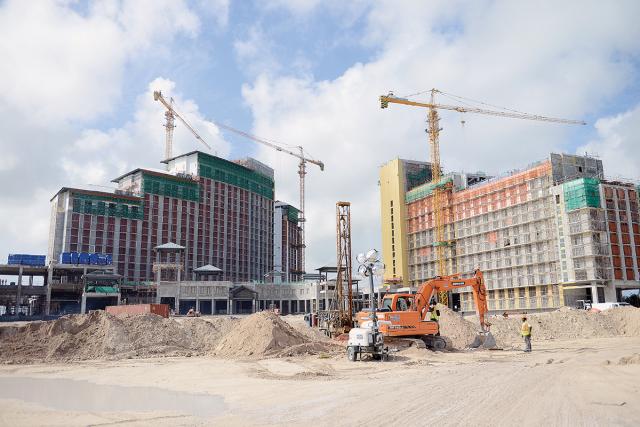 Casino gambling in the Caribbean is mainly a tool to enhance the tourism product for existing visitors, complement the tourism experience with additional activities and to induce increased tourism and related revenue.
Casino gambling in the Caribbean is mainly a tool to enhance the tourism product for existing visitors, complement the tourism experience with additional activities and to induce increased tourism and related revenue.
Even countries and territories that have not legalised gambling have investigated its ability to boost their tourism product. More recently, the idea has also gained traction with governments for its ability to raise additional government revenue from the licensing and taxing of gaming operations.
In 2009, Bermuda commissioned a feasibility study on the economic effects that various forms of gaming would have and their ability to support tourism to the island.
The study analysed the potential for casino gambling in Bermuda and concluded that “casino style gaming in some format has proven to be a viable alternative for jurisdictions when it comes to stimulating tourism, under the right circumstances”. The experience in other jurisdictions indicates that “given the right legislative policies, tax structures and operating environment, casino gaming can be a catalyst for additional tourism development”, the study said.
The Green Report calculated potential annual gaming revenues in Bermuda from casino gambling of between $84 million and $146 million under various scenarios. This figure did not include the full tourism impact for the local economy, nor did it take into account the social and community costs of gambling. In all, the report estimated the net economic impact of three casinos in Bermuda to be $94 million with $34 million in revenue for the public sector per year. Bermuda did not act on the report and casino gambling remains illegal.
Casinos in the Region
Like Bermuda, many Caribbean countries offer no gambling at all. Overall, the Caribbean together with Central America and South America make up only 6.9 per cent of the global gambling market, well behind Asia (30 per cent), Europe (29.3 per cent) and North America (27.5 per cent), according to consultancy firm Global Betting and Gaming Consultants.
But according to the World Casino Directory website at least 15 Caribbean nations operate casinos.
The size of the casinos and the gambling experience varies with many casinos being small with only three or four tables and 10 slot machines and a far cry from the Las Vegas experience. But there are notable exceptions such as the Atlantis on Paradise Island in the Bahamas. The lavishly decorated 100,000 square foot casino with 80 table games and more than 800 slot machines offers everything from blackjack, baccarat, craps and poker to roulette.
Typically Caribbean casinos are part of a hotel or resort, reflecting the tourism objective of the industry and due to their ability of offering regular casino gamblers free or discounted accommodations, food, beverage and other resort amenities.
The Bahamas
The Bahamas has a long casino history having legislated gambling in the 1969 Lotteries and Gaming Act.
There are three major resort casino operators – the Atlantis on Paradise Island, the Crystal Palace casino in Nassau and the Grand Lucayan’s casino in Freeport. These will be joined in 2014 by the $2.6 billion Baha Mar project, which will feature a new casino as one of its main attractions. The Atlantis resort with 6,500 staff is the largest private sector employer on the islands.
More recently, the Bahamas has been facing increasing competition from casino operations in Florida and other parts of the US from where most of the tourists that value gambling hail. Bahamians and residents are prohibited from entering the casinos and gambling.
Revenues
The amount of money that governments can raise from casino gambling also varies widely.
Aruba charges a gaming tax of 4 per cent of the receipts. From 2001 to 2006 that resulted in tax revenue of between US$9 and 12 million. The Netherlands Antilles aim to generate revenues of 7.5 million guilders (US$4.29 million) from 14 casinos in 2013. And Puerto Rico, which takes 50 per cent of the gambling profits, received US$156 million in gambling taxes in 2011.
The Bahamas, which charges between 5 and 25 per cent tax on winnings, takes approximately between US$15 million from its casino industry in taxes. The gross gaming revenues in the Bahamas declined to $146 million last year.
By Michael Klein
Compass Cayman



